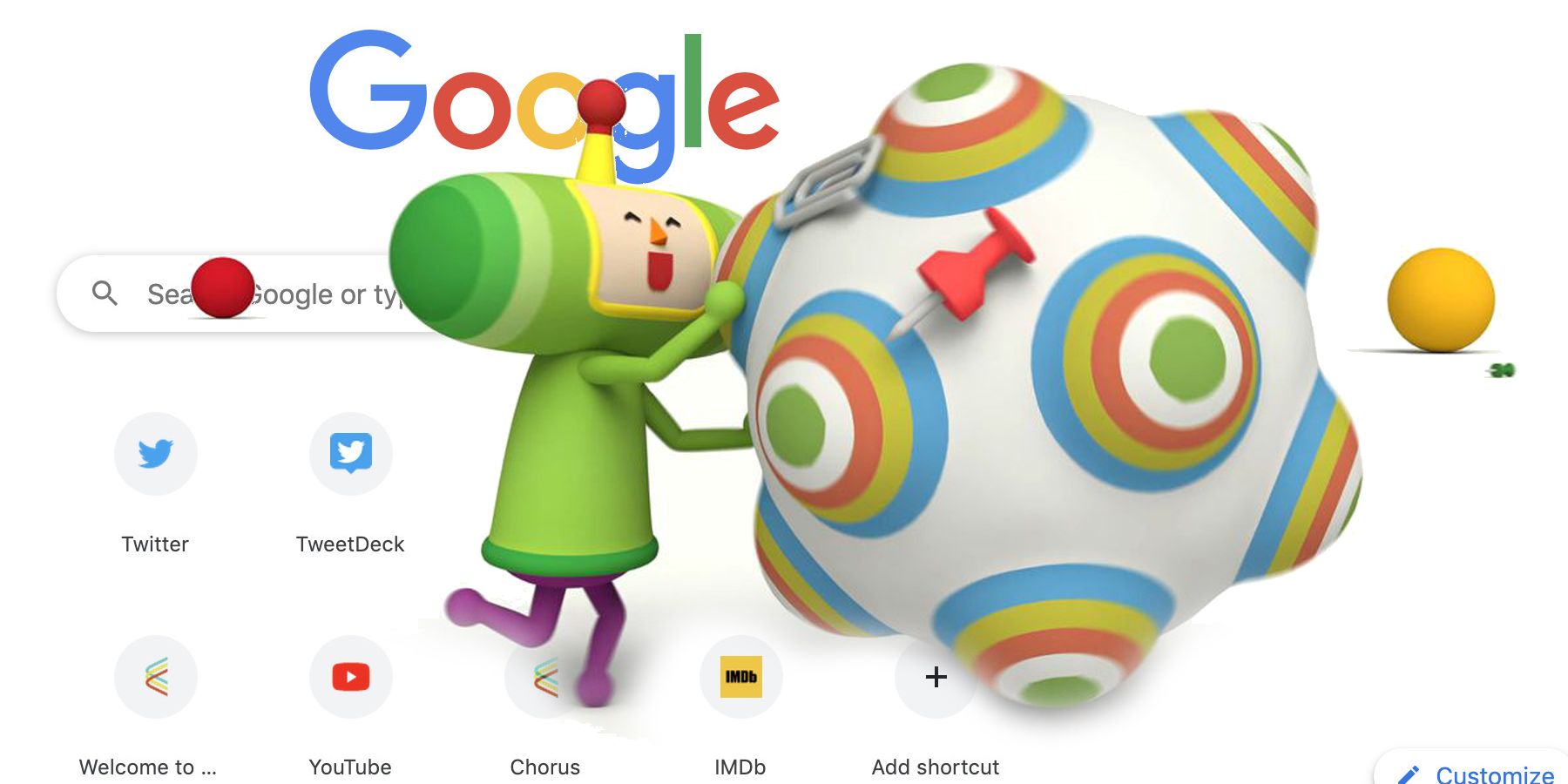
The Future of Google: Query Deserves Ads Leading the Way

Discover how Query Deserves Ads is shaping the future of search engines. AI's impact on search may not be the final chapter, thanks to this innovative approach.
Google’s CEO Sundar Pichai recently talked about the future of search and highlighted the importance of websites, which is great news for SEO. But how does this fit in with the idea that AI will eventually make search engines and SEO irrelevant?
Search vs Chatbots vs Generative Search
There’s a lot of discussion about AI search but what’s consistently missing is a delineation of what is meant by that phrase.
There are three ways to think about what is being discussed:
Search Engines
Chatbots like Gemini or ChatGPT
Generative Search (which are chatbots stacked on top of a traditional search engine like Perplexity.ai and Bing)
Traditional Search Is A Misnomer
The word misnomer refers to an inaccurate name, description, or label given to something. We often still use the term traditional search out of habit. However, it's important to recognize that traditional search no longer exists. Referring to Google as traditional search is misleading.
Sundar Pichai highlighted that Google has been utilizing AI for many years. This is evident through systems like RankBrain, SpamBrain, Helpful Content System (HCU), and the Reviews System. AI plays a significant role in almost every aspect of Google search, from the backend to the frontend in the search results.
Google's 2021 documentation on SpamBrain explains how AI is utilized during the crawling and indexing process. At the crawling stage, systems are in place to identify spam on web pages or other content. If any content is flagged as spam, it is not included in the search index.
These systems are also effective for content found through sitemaps and Search Console. Spammers have been known to hack into vulnerable websites, pretending to be the owners, verifying themselves in Search Console, and using it to request Google to crawl and index their spammy pages. Thankfully, with the help of AI, we can detect these suspicious verifications and stop spam URLs from being included in our index.
AI plays a crucial role in the indexing process, ranking process, and even in the search results that users see.
Google's most recent update in March 2024 is considered complex and is still ongoing as of April 2024. It seems that Google has shifted towards a more AI-friendly system to incorporate AI signals from the HCU and Reviews System directly into the core algorithm.
Many people are concerned about the future of AI search, fearing that it will simplify answers. However, Google already provides summarized answers in featured snippets and knowledge graph search results.
Let's face it: traditional Search is no longer the same. Google is now better described as an AI search engine, which is important to recognize because it directly ties into Sundar Pichai's vision for the future of search in the next decade.
Introducing Blended Hybrid Search, also known as Generative Search.
What is commonly known as AI Search is actually more accurately referred to as Generative Search. This type of search involves generative AI chatbots like Bing and Perplexity.ai, which are built on a search index. These chatbots have something in the middle that coordinates between them, known as Retrieval-Augmented Generation (RAG). This technology was developed in 2020 by researchers at Facebook AI.
For more insights on the future of search, you can also check out Google's CEO's thoughts on what search will look like in the next 10 years.
Chatbots
Chatbots are a lot of things including ChatGPT and Gemini. No need to belabor this point, right?
Search Vs Generative Search Vs Chatbots: Who Wins?
Generative search is like a mix between a chatbot and a search engine, but it can be a bit clunky with a busy interface. It tries to help with tasks like finding a local restaurant's phone number or even writing an essay, but it doesn't excel at either. However, it's likely that these combined features will fade away and it will end up being similar to what Google already offers.
Chatbots and Search Engines
That leaves us with a near-future of chatbots and search engines. Sam Altman said that an AI chatbot search that shows advertising is dystopian.
Google has integrated the Gemini AI chatbot into Android as an AI assistant. It can assist with making phone calls, contacting local restaurants, and even recommend the best pizza in town. CEO Sundar Pichai has expressed the importance of continuing to utilize the web as a valuable resource.
However, if the chatbot does not display ads, this could greatly impact Google's ad revenue. Despite this concern, the SEO industry believes that SEO may become obsolete as AI technology replaces traditional search engines.
Google Could Shift Focus from Search-Based Advertising to Cloud Services and SaaS
It is possible that Google may shift its focus to generating revenue from cloud services and SaaS products instead of relying on search-based advertising. This shift could occur if there is a widespread migration towards AI chatbots in the future.
But why would Google bother crawling the web and developing technology without making money from it, especially when search advertising is so profitable? Google doesn't leave money on the table.
There is a search engine algorithm known as Query Deserves Freshness, which decides if a search query is trending or newsworthy. It will then select a recently published, fresh webpage on that topic.
I also think that chatbots will eventually be able to determine when a search query should display ads and transition to showing search results.
Google's CEO, Pichai, goes against the common belief that search engines are on the decline. He believes that the future of search will still involve websites, as the web provides a variety of opinions. So, where is all of this heading?
Google Search already provides answers for non-money related questions such as weather updates and currency conversions without any ads. This means that Google does not lose anything by displaying these types of informational queries in a chatbot.
When it comes to shopping and other transactional search queries, the most effective solution is Query Deserves Advertising.
When a user searches for something related to shopping, the chatbot may eventually switch to showing search results that include advertising, known as Query Deserves Advertising.
This shift towards advertising in search results could be why Google's CEO envisions a future where artificial intelligence and the web coexist. This concept of Query Deserves Advertising may be essential for search engines to maintain their profitable advertising business in the era of AI.
Read: Why Google SGE Is Stuck In Google Labs And What’s Next
Query Deserves Search
An extension of this concept involves considering search queries that require human input, such as comparisons, user reviews, expert reviews, news, medical, financial, and other topics. These types of queries may transition into search results that look different from what we see today, but they are still search results.
People enjoy reading reviews, staying updated on news, and engaging with human-generated content like gossip. This interest in insights and personality is unlikely to diminish.
Why SEO is Still Relevant
Perhaps it's too early to declare that SEO is no longer necessary. We are only just starting to scratch the surface, and as long as there is profit to be gained from search, websites, search engines, and SEO will continue to be essential.
Featured Image by Shutterstock/Shchus
Editor's P/S:
The article explores the interplay between traditional search engines, chatbots, and generative search in the evolving landscape of search. While generative search models like Bing and Perplexity.ai have emerged, the article argues that traditional search engines like Google remain relevant, as they provide a comprehensive and diverse range of information. The integration of AI in search has enhanced the user experience, but it has also sparked concerns about the future of SEO.
The article suggests that Google may shift its focus from search-based advertising to other revenue streams, such as cloud services and SaaS products. However, the concept of "Query Deserves Advertising" could ensure that search engines continue to generate revenue from transactional queries. Additionally, the article highlights the ongoing importance of human-generated content in search results, as users continue to value reviews, news, and expert opinions. This suggests that SEO will remain essential in optimizing websites for visibility and engagement in the era of AI-powered search.











